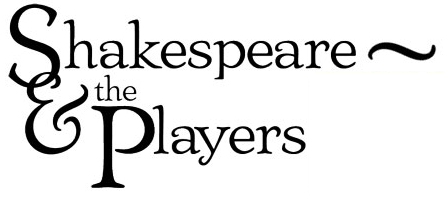(1885-1941) Carrington made his first stage appearance in 1904, and the next year, he played his first part in Shakespeare in Cymbeline at the Queen’s Theatre, Manchester. He spent eight years with Frank Benson‘s company and played many major roles in Shakespeare. After leaving the military in 1919 he revived his career at Stratford where, eventually, he played in over 140 productions. Among his parts were Caliban, Mark Antony (Julius Caesar), Oberon, Ford (Merry Wives of Windsor), Leontes, and MercutioRead more
Posts tagged: #macbeth
Sir Francis Benson
(1858-1939) While at New College, Oxford, Benson produced Agamemnon, the first play to be performed there in the original Greek. In 1882, he made his first professional appearance at the Lyceum Theatre, London—then under the management of Sir Henry Irving—playing the role of Paris in Romeo & Juliet. The next year, he formed a company of his own. In 1886 he married Gertrude Constance Featherstonhaugh (1860–1946), who acted in his company and played leading parts with him. Benson continued toRead more
Lady Macbeth
Lady Macbeth is a major character in Macbeth. Banquo is also featured in the the latter image.Read more
Macbeth (Character)
Macbeth is the titular character in Macbeth.Read more
Sir Herbert Beerbohm Tree
(1853-1917) Born in 1853, Tree’s real name was Herbert Draper Beerbohm. He assumed his famous stage name in the 1870s. After a string of performances, he joined Frank Benson’s company in 1886, where he played Iago before going on to London and the Haymarket Theatre where he eventually became the manager. “He elevated the Haymarket’s status as a Shakespearian playhouse, and his productions of The Merry Wives of Windsor (1889), Hamlet (1892), and Henry IV, Part 1 (1896) earned himRead more
Robert B. Mantell
(1854-1928) Mantell was born in Scotland and first appeared on stage in Belfast, Northern Ireland; for a time he used the stage name Robert Hudson, but he reassumed his name Mantell after he joined the company of Helena Modjeska in 1878 and came to the United States. His first professional appearance was at the Theatre Royal in Rockdale in 1876. His first role with Dame Modjeska was as Tybalt in Hamlet at the Leyland Opera House in Albany, New York. HeRead more
Macbeth
It will have blood, they say; blood will have blood (3.4). Macbeth, set primarily in Scotland, mixes witchcraft, prophecy, and murder. Three “Weird Sisters” appear to Macbeth and his comrade Banquo after a battle and prophesy that Macbeth will be king and that the descendants of Banquo will also reign. When Macbeth arrives at his castle, he and Lady Macbeth plot to assassinate King Duncan, soon to be their guest, so that Macbeth can become king. After Macbeth murders Duncan,Read more
Sir Henry Irving
(1838-1905) Sir Henry Irving was the stage name of John Henry Brodribb, who was born in 1838 and raised in a working-class family. He was one of the most famous British actor-managers and dominated the late Victorian Stage (along with Sir Herbert Beerbohm Tree). He was born in Somerset but lived in London from the age of ten. It was seeing Samuel Phelps (also a mentor to Sir Johnston Forbes-Robertson) playing Hamlet that inspired Irving to take to the stage,Read more
